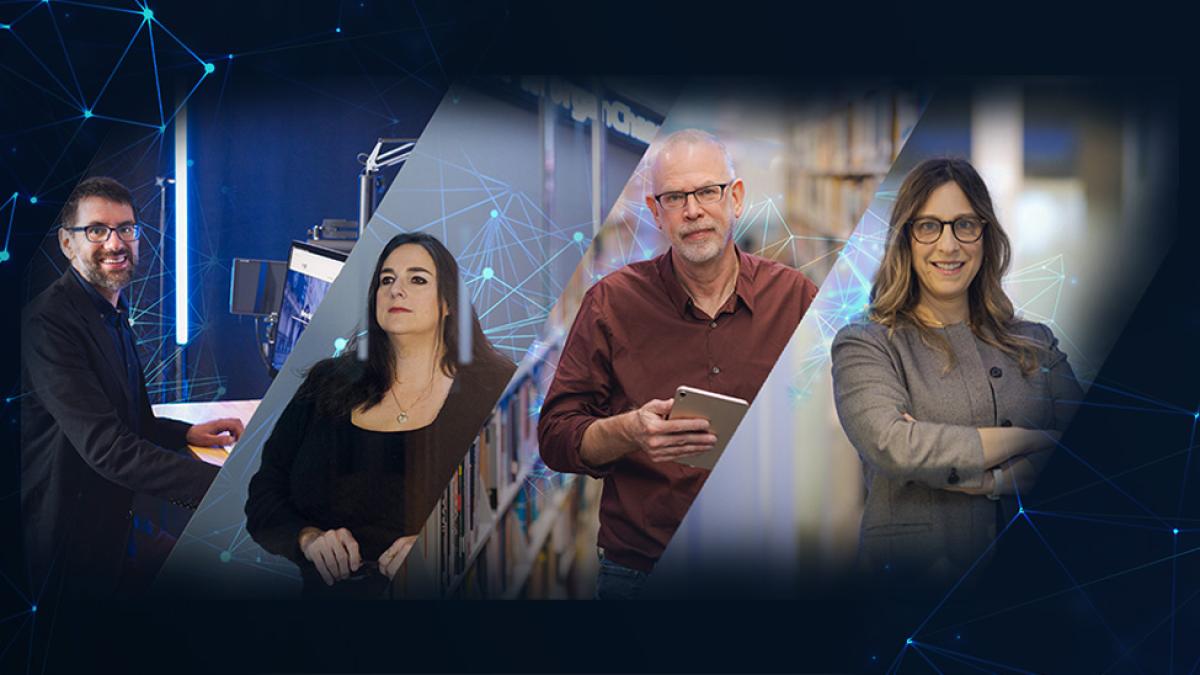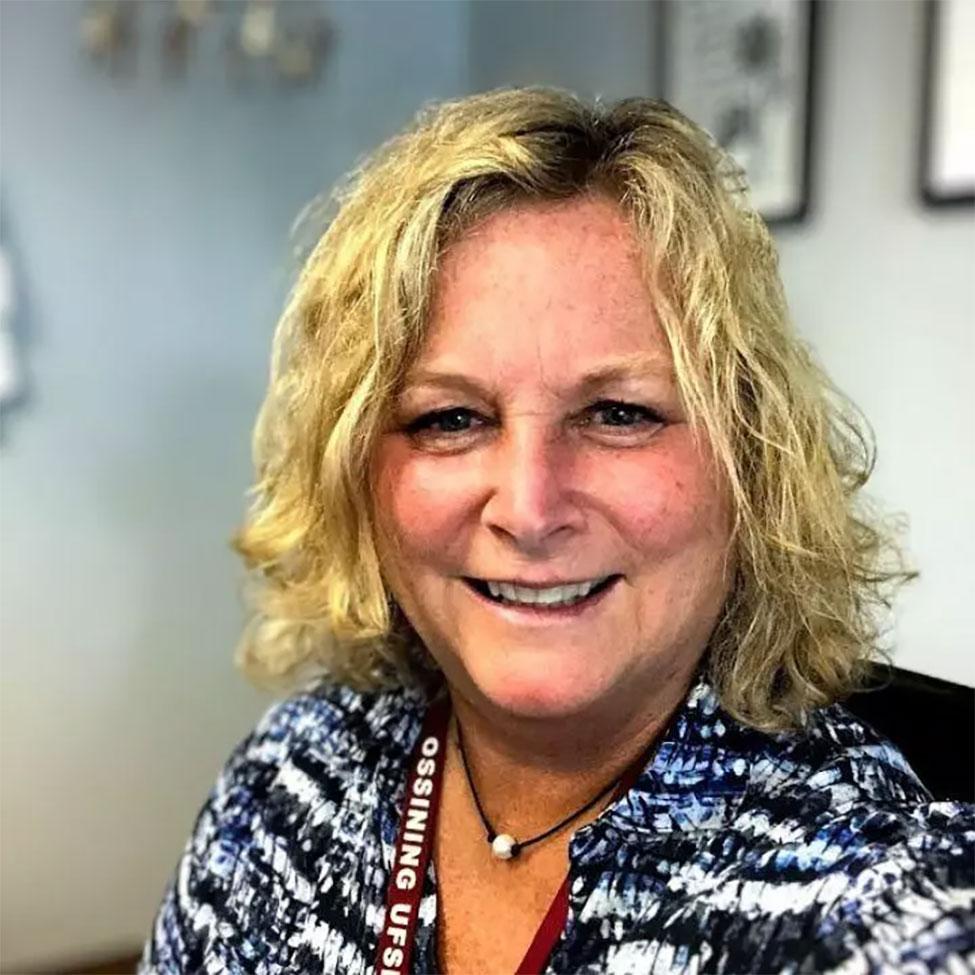
With Prison Strike Over, NY State Must End Solitary Confinement
Haub Law Professor Emeritus Michael B. Mushlin gives a powerful call for human rights and prison reform in an article for Bloomberg Law. Following NYC's prison hunger strike, he challenges New York to honor its commitment to end solitary confinement. “The strike serves as a pivotal moment to examine the role of solitary confinement and reconsider the foundational principles and goals of New York’s prison system,” says Professor Mushlin.
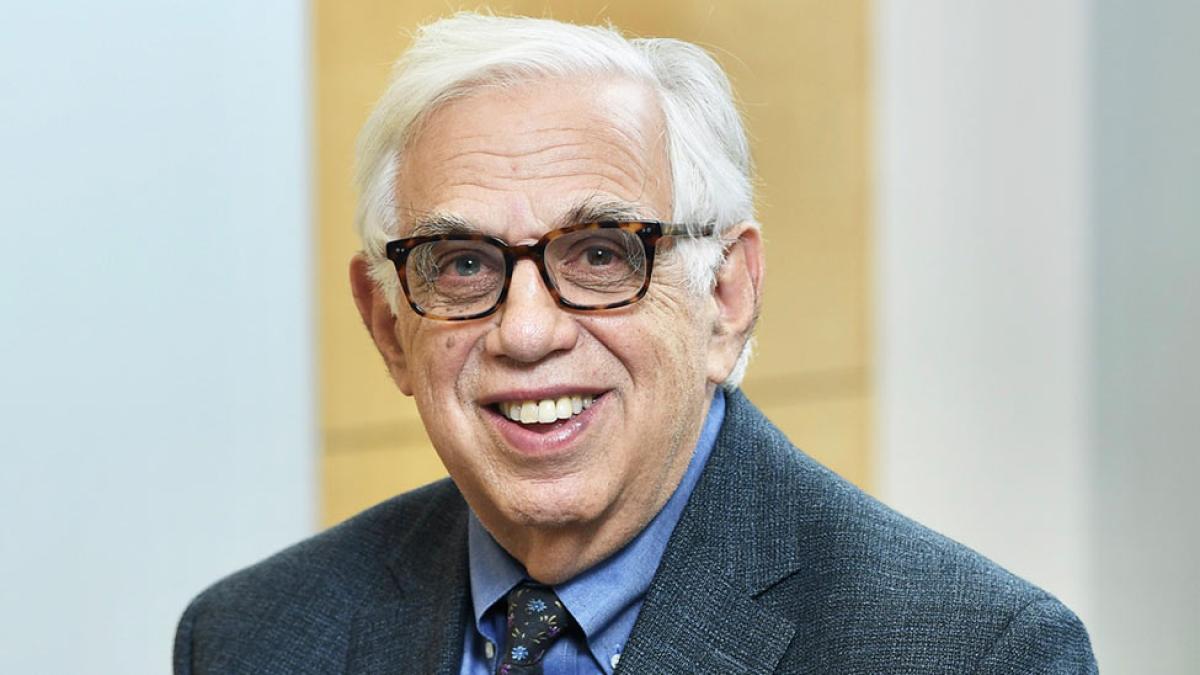
Westchester County Department of Correction Hosts Women's History Month Event
Criminal Justice Professor Kimberly Collica-Cox was recently honored by the Westchester County Department of Correction for her work supporting incarcerated women, Westchester County Government reports.
Alunos De Universidade De Nova Lorque Estão Nos Açores Para Realizar Documentário Sobre A Viola Da Terra
PaceDocs, the University’s award-winning student documentary team, has completed filming in the Azores for their latest project on the viola da terra, a traditional Portuguese instrument. Produced by Dyson College Professors Maria Luskay and Lou Guarneri. The film will premiere in May and be broadcast across Portugal.
Pace to Launch Computer Engineering Degree in Fall 2026
Pace University recently announced the launch of a new BS in Computer Engineering beginning fall 2026, the first of its kind in Westchester County, the Business Council of Westchester reports.
From Blazing Rockets To Blazing Trails: Indian American Community Applauds Sunita Williams
Pace alumna and Public Affairs Fellow Hitasha Nagdeo is featured in News India Times, discussing her journey from graduate school to media intern and how astronaut Sunita Williams inspires her.
An Eye on the Future
When Carrieann Sipos needed to hire great teachers, Pace grads were always at the top of the stack. Now, after a 34-year career in public schools, she’s back—this time as a full-time professor at Pace’s School of Education, preparing the next generation of equity-driven educators.
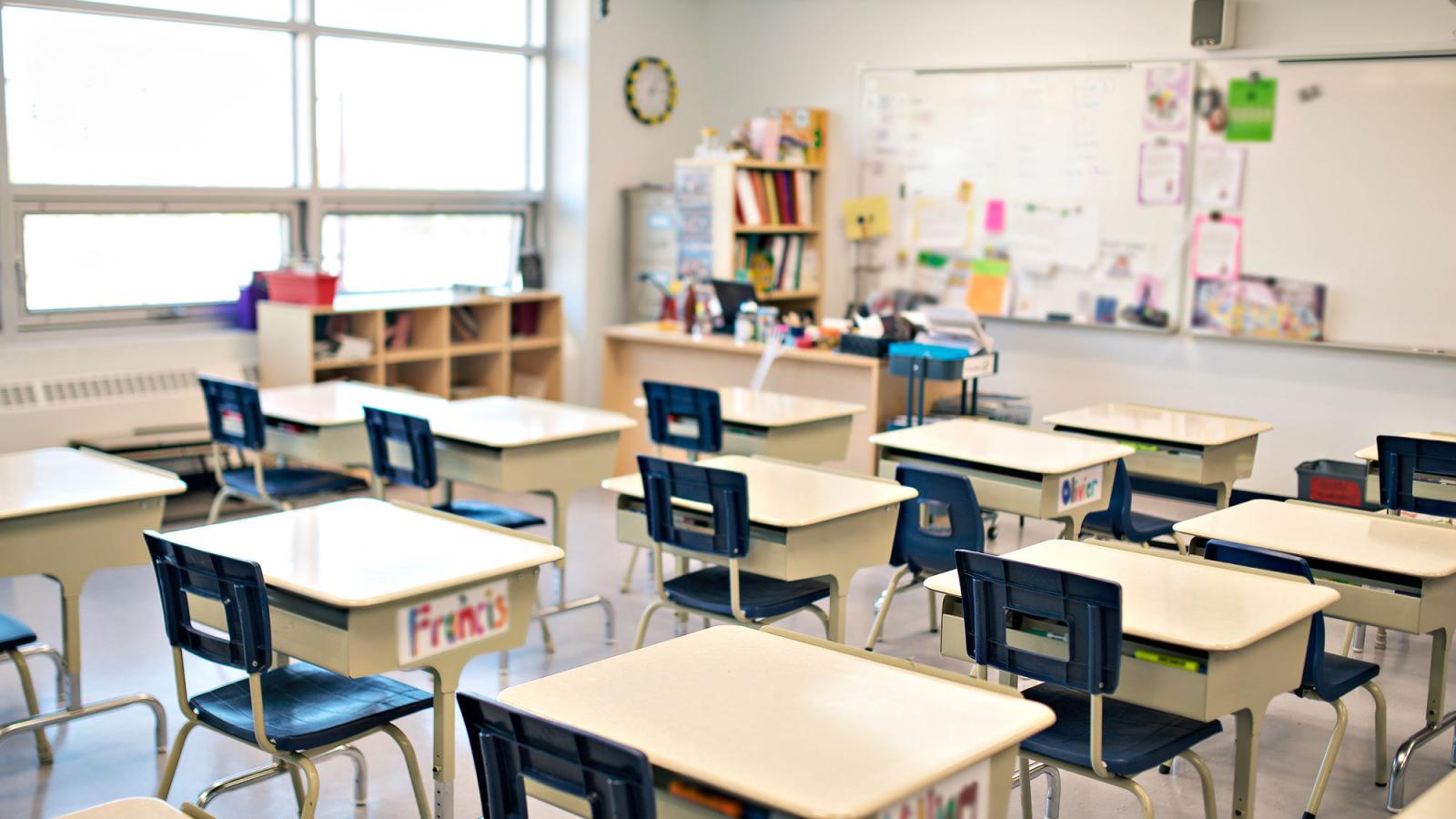
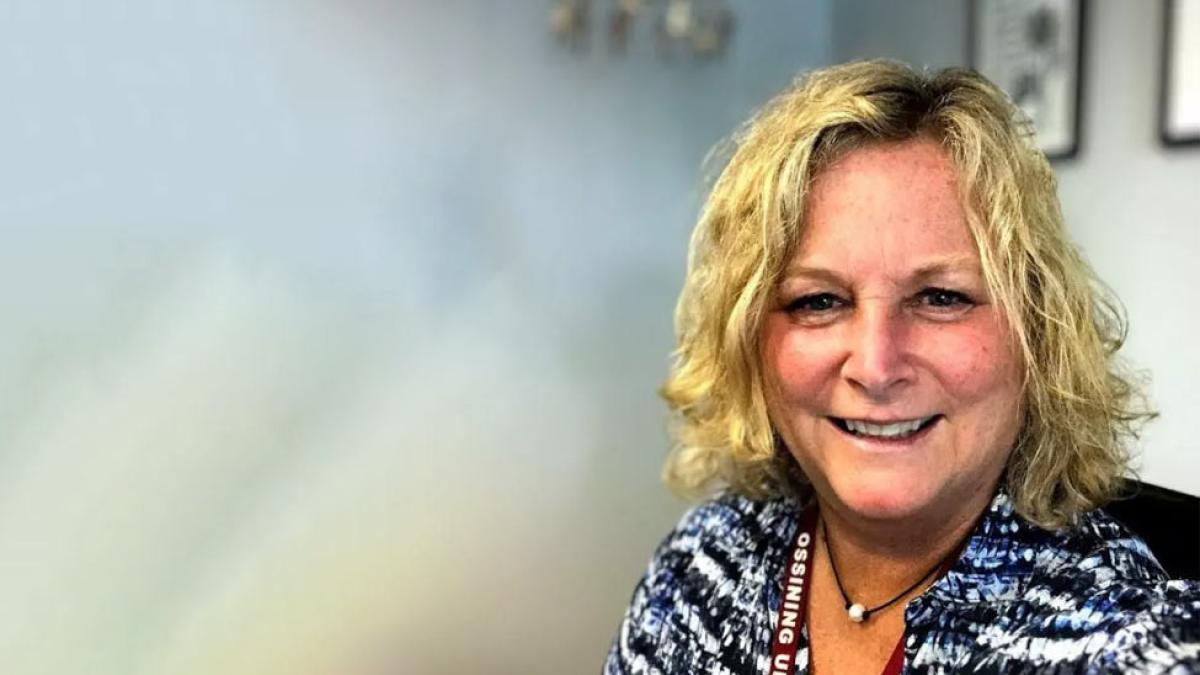

For students, what happens at Pace may be second only to what comes after college. Carrieann Sipos, a clinical assistant professor at Pace’s School of Education, understands this, too.
Whenever Sipos needed to fill an opening at the Ossining school district, in Westchester County, where she worked for 34 years before becoming a full-time professor, she’d make two piles of resumes on her desk. The first included applicants with degrees from Columbia University, Bank Street College of Education, and Pace.
The second pile? Everyone else.
“Pace students were always among the best hires we made,” said Sipos. “Anyone graduating from the School of Education was incredibly well prepared.”
As a new full-time faculty member, it’s now her job to ensure that Pace’s students remain at the top of the stack.
“My students are ambitious and want to make a difference; I see a lot of my younger self in them.”
“My students are ambitious and want to make a difference; I see a lot of my younger self in them,” said Sipos. “But the teachers I train will be up against very different challenges than what I faced. Take diversity. Ossining, when I began teaching, looked very different from the Ossining of today.”
Sipos tells her students that to thrive as a modern educator, they must become “equity warriors,” committed to embracing diversity in all its forms. She emphasizes the importance of community, student-centered learning, and equity in education.
“To really know what a child needs in a highly diverse classroom, teachers must have a deep relationship with their students,” she said. “It’s that sense of care I hope to instill in my students at Pace.”
From Fieldwork to Dream Work: Lauren Pizzella, Master of Science in Health Informatics Class of 2025
Introducing Lauren Pizzella, recent graduate of the Health Science, BS program. Lauren is now a current student in the Master of Science in Health Informatics program where she has earned a full-time position at Westchester Medical Center, following her fieldwork experience at the same location. We connected with Laurent to get her insight into both programs and learn about the opportunities fieldwork can unlock!
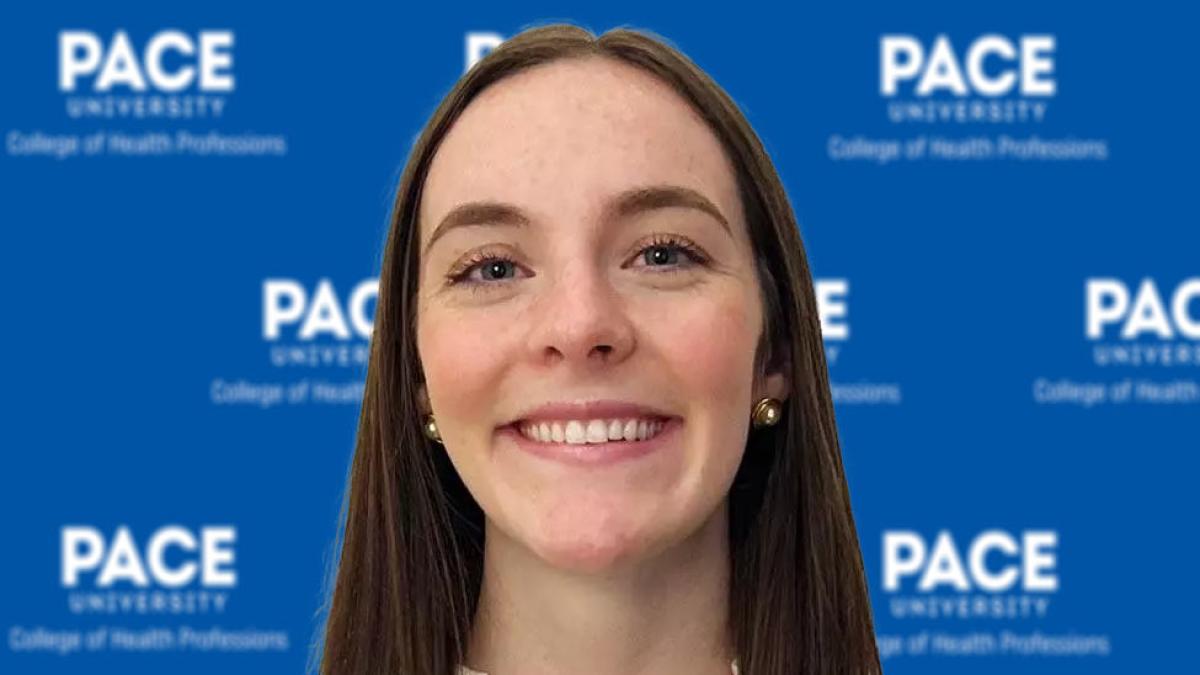
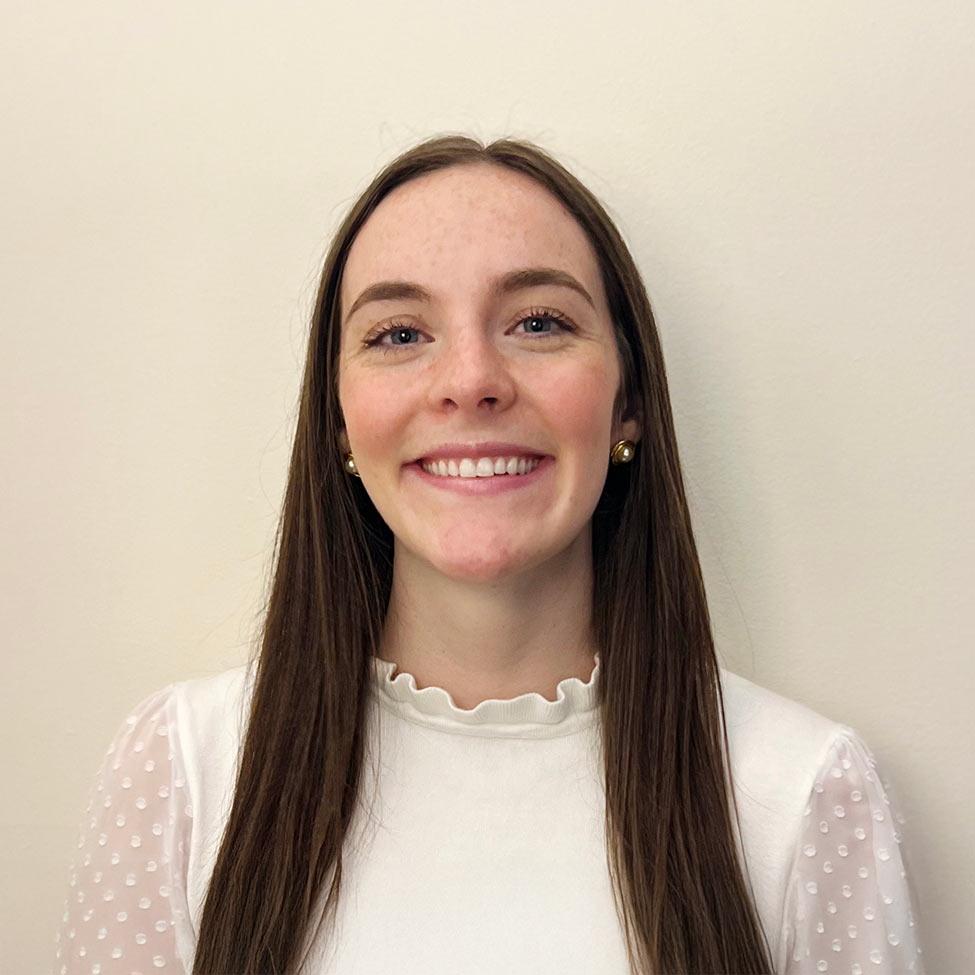
Introducing Lauren Pizzella!
Lauren is a recent graduate of the College of Health Profession’s (CHP) Bachelor of Science, Health Science program. She began her undergraduate career at a school that was over five hours away from her home in Westchester. When COVID-19 hit, she decided to transfer to. Pace University, allowing her to be closer to home and feel more at ease during uncertain times.
The decision to transfer drastically impacted Lauren in more ways than she could have imagined, including a decision to continue advancing her education. Lauren applied to the Master of Science in Health Informatics (MSHI) at Pace and is on track to graduate in May 2025!
We connected with Lauren to learn about her experiences as a dual Pace degree student and the Health Science, BS and Health Informatics, MS programs from her point of view.
Why did you select the Health Science program?
I have always been passionate about health topics and had always seen myself in a healthcare role; however, I wasn’t sure where I’d fit. I do not have the stomach for patient-facing roles but felt I could find a way into the health field that was still impactful and fulfilling for me. The Health Science program opened me up to many classes (health promotion and disease prevention, epidemiology, health IT, and many more) that showed me the different sides of healthcare that weren’t clinical, and because of that, I knew it was the right program for me.
What was your fieldwork like in your undergraduate career?
In my undergrad, I assisted Erica Gollub, DrPH, MPH, professor, with research on an HIV prevention device, specifically for women. This device was not approved by the FDA, despite the impact that it had made in South Africa. I researched the device and gathered literature for Dr. Gollub. Even after completing my field work, I continued to assist her with her research. She carried out a local study and I was able to help with data management, data entry, and survey validation.
Why did you decide to pursue a master's in health informatics?
Spring of 2022 I took an epidemiology course and a statistic course at the same time. I really enjoyed my stats class and taking it alongside the epidemiology course allowed me to see how I can implement what I was learning into the real world.
After talking with my professor, I attended the New York State Public Health Association (NYSPHA) Conference where I was introduced to Denise Tahara, PhD, MPhil, MBA, chair of the Health Science programs at Pace. I expressed my interests to her, and she told me about the MSHI program and thought it would be a great fit for me. After researching the field, I decided to apply to the program.
Do you think Health Informatics is the future of STEM in healthcare?
Yes, absolutely! Health informatics is the foundation of quality improvements, operations, research, and overall decision making in institutions. In addition, many institutions are required to report information for compliance and ranking purposes, which relies heavily on health informatics.
What was your graduate program fieldwork experience like?
In the MSHI program fieldwork, I was a transplant data coordinator intern at Westchester medical center in Valhalla. I frequently helped with audits relating to transplant-specific quality standards established by the United Network of Organ Sharing (UNOS). I assisted with various physician research projects and began the journey of learning new reporting tools such as Tableau and PowerBI.
How has Pace supported you during both of your degree programs?
During my undergrad, my professors were a major support system for me. They were always willing to help, whether it was for academics, or professional advice. For my graduate experience, prior to securing my internship at Westchester Medical Center (WMC), I frequented the Career Services Center where I met with Stewart Ault a career counselor for the College of Health Professions. He helped me professionalize my resume, improve my interview and networking skills, and overall build confidence as a young professional.
Dr. Taraha was a major support through these experiences. Over the years, she continues to frequently check in to see how I am doing and if I am enjoying the program. She is always looking for new opportunities for her students, and really pushes us to be involved and gain valuable experiences.
We heard that you have started to work full time at WMC! What was it like going from a fieldwork placement to a full-time position with the same organization?
Going from a fieldwork placement to working full time at WMC allowed for an easy, comfortable transition. I already had a foundation of transplant knowledge to bring to the table, giving me the ability to pick things up quickly when being assigned to my first project.
Following that, my manager gained an understanding of my skills and abilities, so I was able to become involved in projects earlier than if I hadn’t been here previously. I was able to come in with my established professional relationship, and I was very comfortable in the environment.
Any advice for undergraduate and graduate students?
Don’t feel pressured to have it all figured out, do what you enjoy, connect with your peers and professors, and do not be afraid to step out of your comfort zone! If you follow what makes you happy, the rest will come! We grow through discomfort!
—Lauren Pizzella, Class of 2025
What do you think is important to share with someone interested in joining the MSHI program?
If you are considering MSHI, know it is a great program that truly opens the door for many opportunities. Throughout the program you will be introduced to different areas (e.g. clinical systems, database management, evidence-based research for health informatics) of healthcare that identify the many ways health informatics can make a difference. I am confident that you will obtain a unique set of skills many organizations and employers are eager to find!
Anything else you'd like to share?
Pace University gave me the knowledge, support, and opportunities to be the young professional I am today. I worked as a student in the Organizational Planning, Assessment/ Institutional Research (OPAIR) department as an institutional research analyst for almost three years!
I learned key skills in analytics and research will also fine tuning my soft skills in communication, problem-solving, and critical thinking. This role at Pace allowed me to gain real-world professional work experience with the knowledge, support, and opportunities that served as an additional major contributor to who I am as a young professional today.
Elisabeth Haub School of Law at Pace University Hosts Symposium on Tax Law, the Environment, and Climate Change with American Tax Policy Institute and Pace Environmental Law Review
On March 21–22, 2025, the Elisabeth Haub School of Law at Pace University proudly hosted the American Tax Policy Institute (ATPI) and Pace Environmental Law Review (PELR) Symposium on Tax Lax, the Environment, and Climate Change.
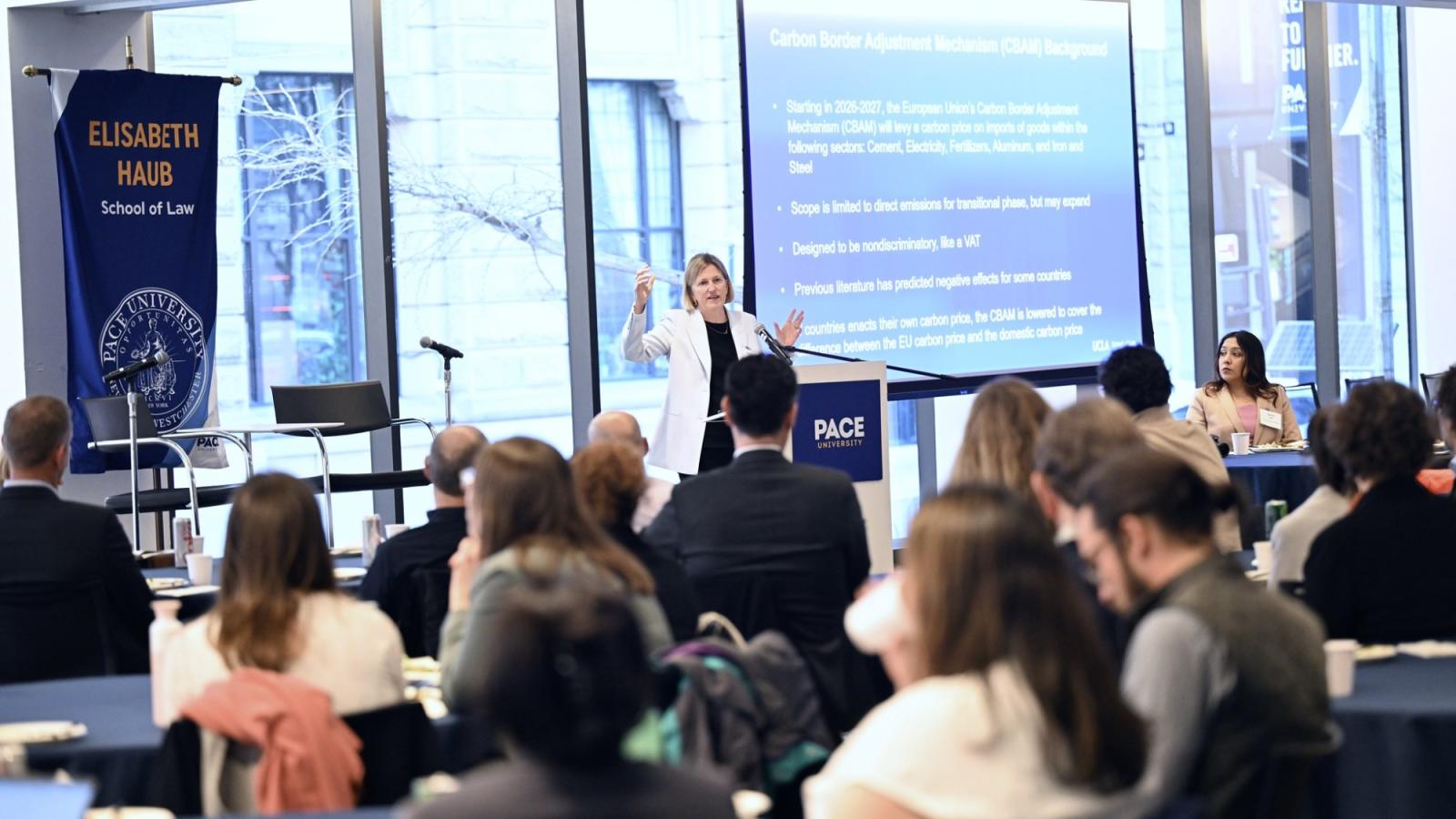
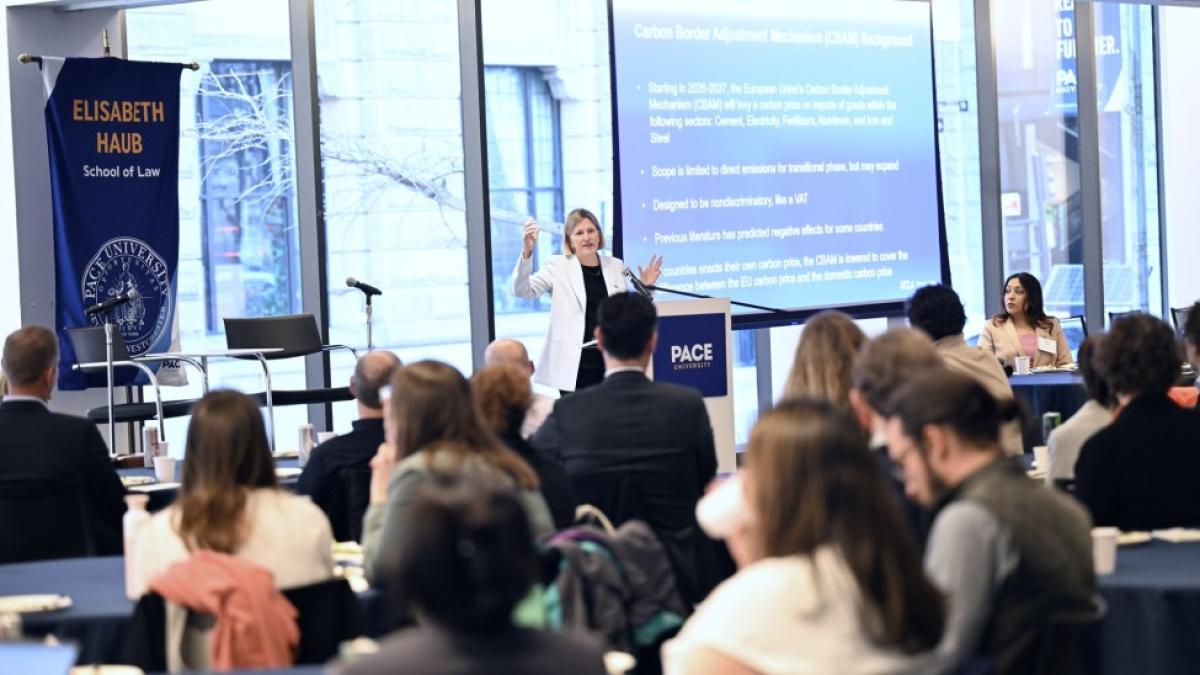
On March 21–22, 2025, the Elisabeth Haub School of Law at Pace University proudly hosted the American Tax Policy Institute (ATPI) and Pace Environmental Law Review (PELR) Symposium on Tax Lax, the Environment, and Climate Change. The two-day symposium, held on Pace University’s downtown campus, explored the intersections of tax law, climate change, and environmental policy. The symposium brought together leading experts, policymakers, scholars, and practitioners to discuss the critical role of tax policy in addressing pressing environmental challenges and advancing sustainability.
The symposium opened with remarks by Bridget Crawford, University Distinguished Professor, Elisabeth Haub School of Law at Pace University, and President of the American Tax Policy Institute. In her remarks, Professor Crawford emphasized that each person -- including lawyers, economists, policy experts, students, and members of the general public – can play a role in halting the ongoing irreversible damage to our planet. She went on to outline key agenda items for addressing climate change, including the need to: recognize the power of tax law to shape behavior and attitudes, examine the differential impacts of environmental harm, acknowledge that what may seem neutral is not always fair, bridge the gaps between law and both social science and social justice, push for reform in legal and economic structures, consult with those who live with the daily consequences of environmental degradation in order to develop solutions, expand the discourse beyond historically traditional frames, and foster dialogue across coalitions. Professor Crawford aptly stated that, “Saving the planet is not a political issue; it is a practical one,” and that while there is no single answer to the climate crisis, everyone can have a positive impact by embracing what they do best, whether that be teaching, writing, advocating, or some other work. She noted in closing that, “The fight for environmental justice will not be won in a single courtroom or a single legislative session – but it will be won through the collective efforts of us all.”
Saving the planet is not a political issue; it is a practical one.
Immediately prior to Professor Crawford’s remarks, Mackenzie Wittig ’25, Symposium Editor for the Pace Environmental Law Review, delivered brief welcoming remarks. The first day of the academic conference consisted of numerous panels that covered various aspects of discussing the intersection of tax law and the environment. Specific panel topics included Climate Change and the Inflation Reduction Act: How We Got Here; Carbon Tax and Other Pricing Proposals; Taxation, Economic Impacts, and Environmental & Social Justice; and Place-Based Environmental Initiatives. Each panel provided a platform for forward-thinking discussions by top academics, practitioners, and policymakers in their respective fields. Mackenzie Wittig later reflected that, “This was a stimulating program that got so many of us thinking about the ways that tax law is integral to environmental law and vice versa. There is no doubt that we need lawyers with expertise in both fields, and this symposium framed the issues in a way that was both educational and inspiring.”
A highlight of the first day was the keynote address delivered by Kimberly Clausing, PhD, the Eric M. Zolt Chair in Tax Law and Policy, UCLA School of Law. Professor Clausing’s keynote focused on International Climate Cooperation After 2024 and opened with the recognition that climate change is a global problem that cannot be solved unless we “bring together the world.” Her lecture established a timeline of the climate change crisis, the US climate policy in 2025, key challenges for global emissions reduction, and how to create better incentives for governments to cooperate and make large-scale changes. Significantly, Professor Clausing noted that any policy solutions must consider equity issues in and between countries. She also acknowledged policy tools are not well-equipped to take equity into account, which in turn creates difficulties. Throughout her lecture, Professor Clausing acknowledged the multiple ways that current political tensions inform responses to the climate crisis. She closed her address with a carbon-pricing proposal that aims to be fair and provide adequate incentives for multinational participation. Countries must work together to address climate change, Professor Clausing observed.
Following the keynote, Julie Divola, Esq., partner at Pillsbury Winthrop Shaw Pittman LLP and the American Tax Policy Institute Immediate Past President, moderated a Q&A.
The first day concluded with a wine and cheese networking reception. Several Pace Environmental Law Review students gave one-minute presentations of their student notes before informal conversations among panelists, students, and other conference attendees.
The second day of the symposium featured a panel on the topic of Sustainable Finance, ESG, and Climate Resilience. Closing remarks were delivered by Roberta F. Mann, Professor Emerita, University of Oregon School of Law and American Tax Policy Institute Trustee and Mackenzie Wittig ’25, Pace Environmental Law Review Symposium Editor. Attendees also had the option of joining a unique educational excursion to Governors Island hosted by the New York Climate Exchange. The hands-on experience provided both a networking opportunity and an educational experience.
The innovative symposium was a joint effort between the American Tax Policy Institute (ATPI) and the Pace Environmental Law Review (PELR), two organizations dedicated to advancing scholarship and policy discussions in their respective fields. ATPI’s commitment to rigorous tax policy research and PELR’s role in publishing cutting-edge environmental law scholarship made this an unparalleled opportunity for exploring solutions at the intersection of tax and the environment. The symposium reflected Haub Law’s ongoing commitment to interdisciplinary legal education and its leadership in environmental law and policy. The event brought together experts in both tax and environmental law, opening conversations for collaboration across the two areas of law.
Haub Law’s Environmental Law Program—ranked #1 in the country by U.S. News & World Report—has been at the forefront of environmental legal scholarship, policy advocacy, and experiential learning for decades. Through events like this symposium, the program continues to be at the forefront of environmental legal education and innovation. Established in 1982, PELR was one of the first scholarly journals established in the then-new field of environmental law. Affiliated with the highest-ranked Environmental Law Program in the nation, PELR is committed to publishing the most influential and innovative scholarship in the field of environmental law. A special symposium edition of PELR will be published later this year.
The symposium also shone a spotlight on the Tax Program at Haub Law. The school has a longstanding history of educating students in business and tax-related matters. During their studies, Haub Law students take at least one course that offers exposure to administrative law, legislation, and/or the regulatory process. Both Environmental Law Survey and Federal Income Taxation are among the most popular offerings. Students who are interested in continuing their tax studies can choose upper-level courses in Corporate & Partnership Taxation, Tax Policy, and more. Through the Lubin School of Business, students also can pursue a variety of joint degrees with business as the core focus.
Haub Law students are sought-after candidates for positions in large accounting firms, law firms of all sizes, businesses, and non-profit organizations.
“Haub Law students are sought-after candidates for positions in large accounting firms, law firms of all sizes, businesses, and non-profit organizations,” said Professor Crawford. “In recent years, several graduates of Haub Law have continued their studies in Masters of Law in Taxation programs at Boston University, Georgetown University, Northwestern University, the University of Miami, and the University of San Diego.”
The American Tax Policy Institute is a section 501(c)(3) organization whose Trustees and members are some of the leading experts on taxation from the fields of law, accounting and economics. ATPI is a nonpartisan organization that promotes and facilitates scholarly research, analysis, examination, and discussion of tax policy proposals and issues in order to improve the tax system and to provide assistance to governmental authorities involved in tax administration. ATPI supports scholarship in law, accounting, and economics that will aid policymakers and administrators and improve our tax system. The mission of ATPI is to bring together lawyers, economists, accountants, and others who make or implement tax policy in order to analyze tax systems, explore possible improvements to them, and promote understanding of their impact on society.
The highly anticipated event was made possible with support from:
- American Tax Policy Institute
- Pace Environmental Law Review
- American College of Tax Counsel
- American Bar Association Tax Section
- Elisabeth Haub School of Law at Pace University
- Sustainable Business Law Hub
- Pace | Haub Environmental Law
- Caplin & Drysdale
- UConn School of Business Masters of Science in Social Responsibility & Impact in Business
The Next Frontier, or an Existential Threat? How One Art Professor Approaches Generative AI
Pace University Professor of Art Will Pappenheimer, who has long incorporated digital media and new technologies into his artwork, discusses his latest AI-influenced exhibition and the technology’s effects on the art world.

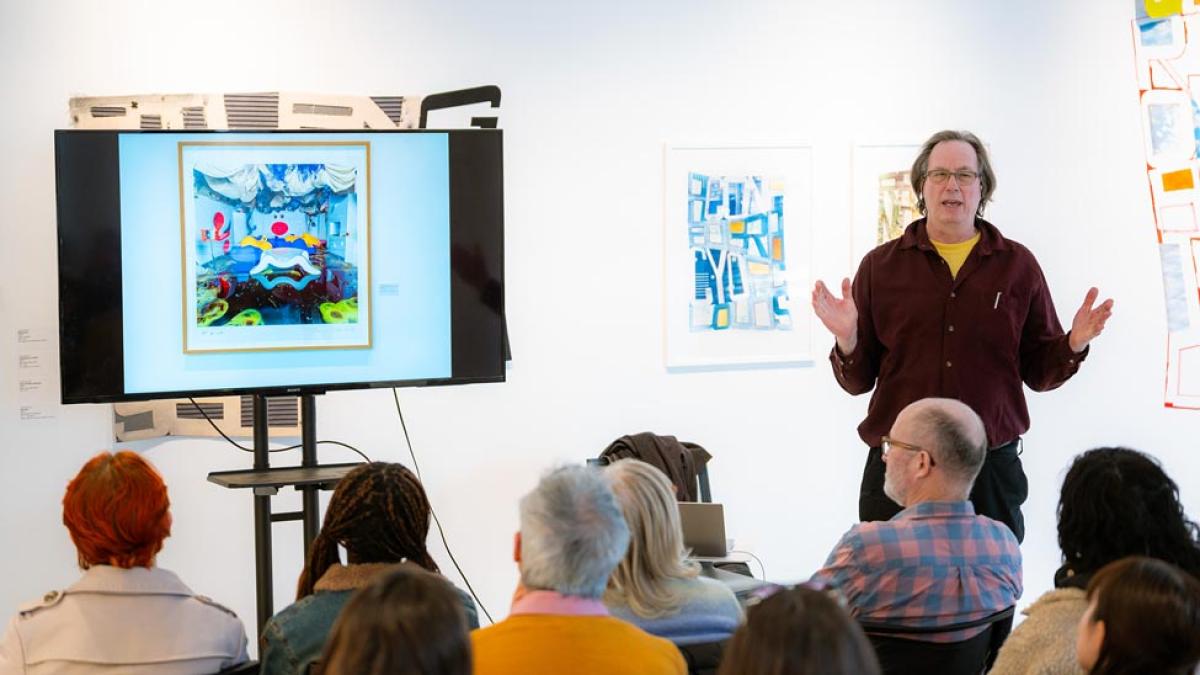
Pace University Professor of Art Will Pappenheimer is a pioneer in the digital art world, having incorporated digital media into his work since the 1990s. Pappenheimer is a founder of the Manifest.AR collective, a group of artists who manipulate the technologies provided through augmented reality to reinvent existing public art. He has traveled the world to create and showcase his work, which has been featured in renowned institutions such as the Museum of Fine Arts in Boston, the Whitney Museum of American Art, Kunstraum Walcheturm in Zurich, the Golden Thread Gallery in Belfast (ISEA 09), FILE 2005 at the SESI Art Gallery in São Paulo, and the Xi’an Academy of Art Gallery in China, among others.
More recently, with the introduction of text-to-image generative artificial intelligence (GenAI), Pappenheimer has been experimenting with this groundbreaking medium. His latest work, shown at the Pace University Art Gallery as part of the Flux exhibit, includes video, augmented reality, and digital prints generated by AI text prompts, all investigating a devastated post-human environment.
We had the opportunity to talk with Pappenheimer about the revolutionary potential of GenAI in the art world, how this technology is changing the way he teaches and approaches his own work, ethical issues, centuries-old questions about ownership and originality, and more.
Can you describe your most recent AI-influenced work for the Pace University Art Gallery’s Flux exhibit?
The body of work that addresses AI is called Flooded and Moldy Rooms After Artists. This series of works is in the art-historical vein of artists who have done work based on previous artists, and they’re often called “after” so-and-so. “After” Rembrandt, or “After” Duchamp, for example. I created large scale prints using prompts that incorporate both a well-known artist and eccentric descriptions incorporating moldy and flooded rooms following ecological disasters.
I’m interested in the idea of a possible economic, ecological collapse, and mixing that in with a pre-existing artist’s work so you can see that artist’s aesthetics on the site of ecological disaster—focusing on the idea of the flood, and what it would leave behind.
One of the critiques of AI is that it’s using large quantities of energy through servers, and this work ties into that potential disastrous ecological future. It has a weird predictive feeling about it. One word that’s increasingly relevant in the world of digital media is the concept of “post-human”, and I’m playing off that concept.
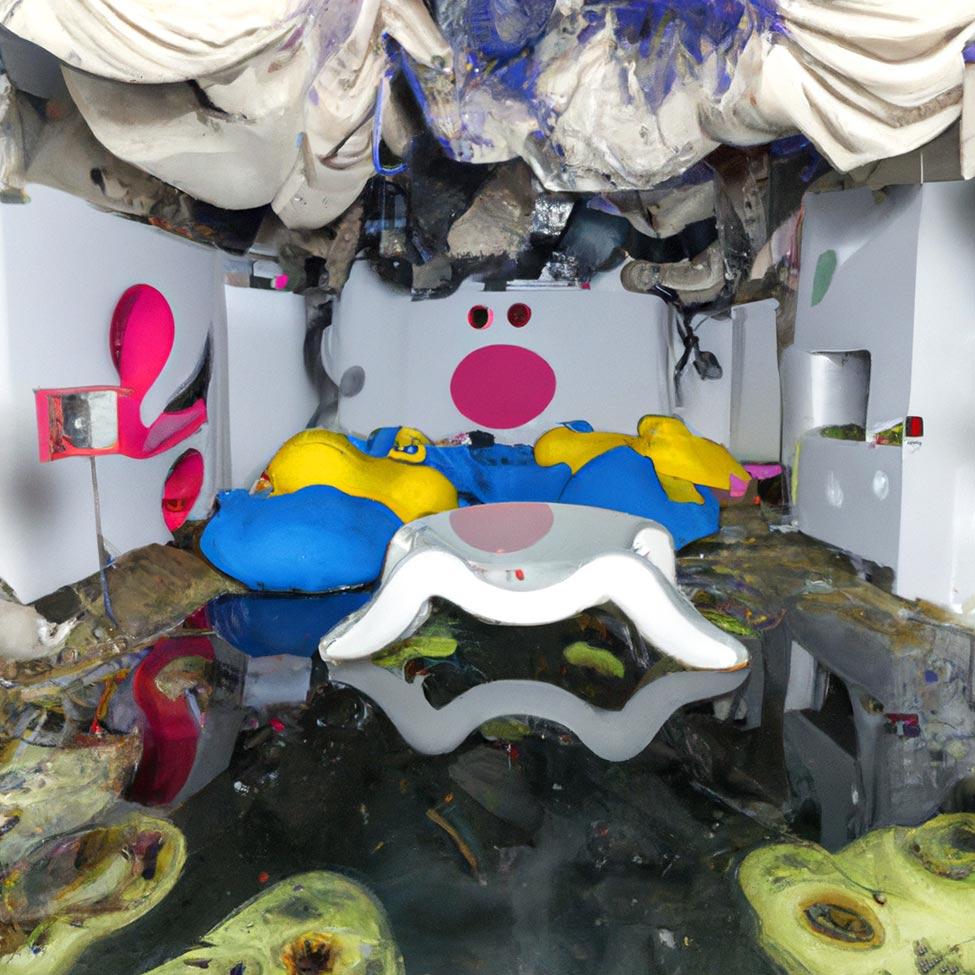
How have you approached “creating” art through GenAI?
Going back to when this technology was first introduced, I did a bit of experimentation just as Dall-E 1 and some of the other models were beginning to operate. I found that if I created an interesting, borderline nonsensical prompt, I got very interesting results on par with artists’ works that I knew. I was very intrigued by its results.
There are a lot of complaints about AI, but I found the images it produced to be quite sophisticated. At a Pace event, I put four images on the screen—three of them were artist’s images from various collections in museums and one of them was generated by AI. No one was able to identify the AI generated image.
It’s very impressive what AI is doing, and the quality of the AI work brings up the issue of artists being concerned about their jobs and functions being replaced. I’m not making a commentary on that, I’m just saying, this art is quite good, and I think that artists are still going to be producing wonderful work.
It’s also very important to keep in mind that some of the reason AI art is good is because of the database it’s drawing from. If the database is filled with good art, made by artists, you’re going to get quite good results.
The concepts of ownership and originality are one of the major ethical concerns surrounding GenAI, especially in art. How have you approached this issue in your work?
Ideas of originality and ownership, certainly in the last few years, have been a hot button issue. It’s clear that some artists involved in more traditional art—painting, sculpture, etc.—have been uneasy about this idea that a computer can generate art.
One interesting aspect ethically and legally—as far as I know, I’m not a law professor! —is that you can’t claim ownership of an AI image because right now, because ownership/authorship by humans is defined by a human making the artwork. Since a machine arguably makes most of an AI image, that’s arguably not within the legal definition of authorship. I’m trying to get my students thinking about and discussing these issues.
That’s also why I haven’t signed the Flooded and Moldy Room prints with my name. I sign them with a very simple zero with a slash through it, pointing toward the idea that “no one person” made this image because it’s a collective image. The only thing I did was take care of the image, create the prompt, and print it carefully. On the back, I sign it with my initials saying I printed it when I printed it. The date on the image is the date that I finished with this whole process.
I am heavily involved in the creation of this art, but I’m not going to claim authorship of this whole image.
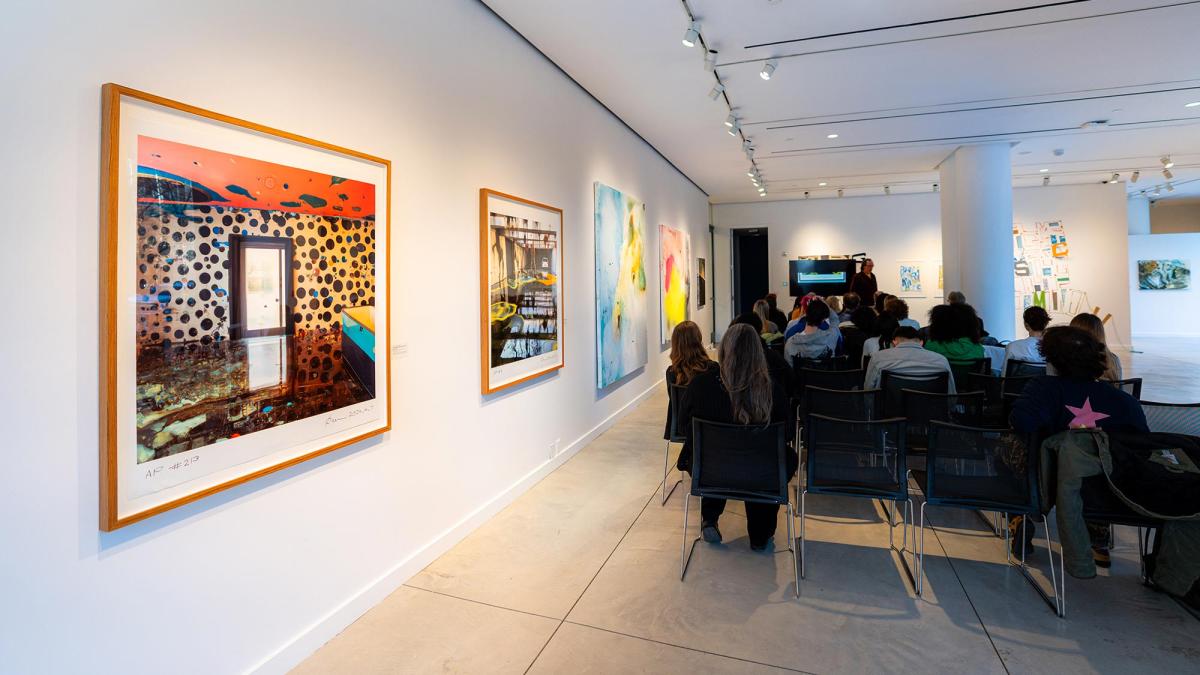
How has the introduction of text-to-image GenAI changed the way you teach?
A few years ago, when text-to-image GenAI was first introduced, I was mostly drawing a blank with students—they weren’t even using ChatGPT yet.
In a second-level digital design course, I started incorporating a GAN site—a particular form of generative AI. This site requires that you submit 30 images. It would then start to process those images together, and you’d be able to see that process. I wanted students to see this process happen. Even though GAN isn’t the only form of AI generation, it’s a way to get behind the scenes a little bit and get a sense of what’s going on when someone puts in a prompt.
More recently, there’s been a lot more AI projects, more websites, and more widespread use. A couple of my students, for example, have been using Adobe Firefly in Photoshop. I was surprised to learn how respectful they were being—they were using it for parts of an image, to complete an object they couldn’t get, or a certain area of an image to enhance or embellish.
I think the best way to deal with AI in the classroom is to talk about it, to make it a part of assignments, and dissect the nuances of how it can be used and how it affects art—I’m using it myself, after all, even if the way I’m using it is to create larger commentary.
How has the introduction of AI changed the way you approach your own work?
Because I’ve worked with digital media since the mid-90s—we’ve always been presented with these evolving media—the internet, social media, augmented reality, and so on.
With these technologies, we as artists have always looked for ways to use them—and misuse them. To jam them or do things they weren’t meant to do. I’m very used to that way of dealing with technology, and it’s still what I do. This is what I’m doing with AI, trying to get it to do something that most users of AI are not interested in, that reveals the way it really works.
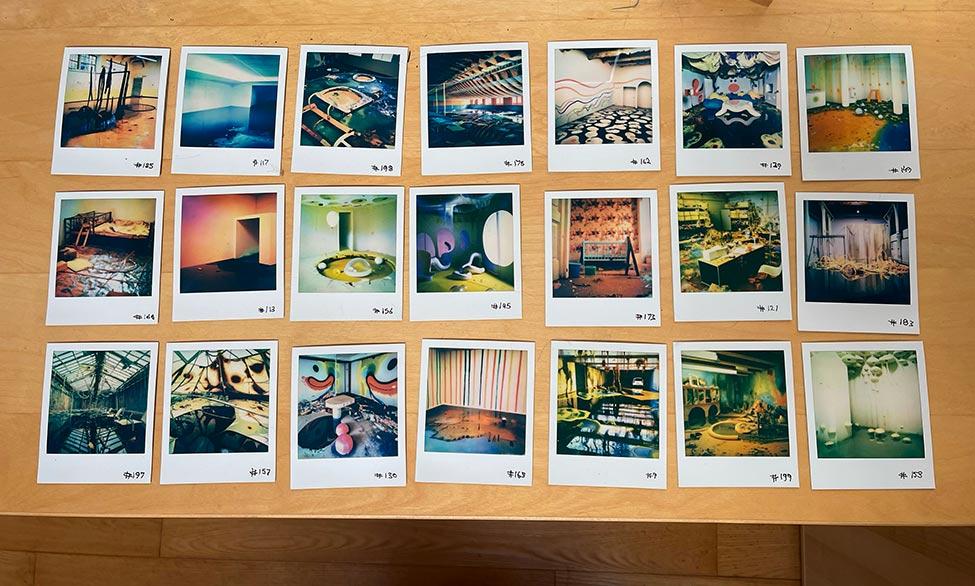
As someone well-versed in the relationship between digital media and art—in what ways is AI different that the technologies that have preceded it, and i what ways is it similar? Do you feel that GenAI represents an existential threat to art?
One thing to mention in the realm of art is to understand—why would artists want to use various technologies to make their work, and what is the relationship between the artist and the machine? This is an idea that goes back to the early part of the 20th century, the Surrealists and Dada art movement, at a time when the industrial revolution was still progressing, and it was producing all types of war equipment.
Through these movements, these artists identified the machine in acting as a way that was counter to the human ego. Surrealism was the idea that the machine could better get at something that was dreamlike, as opposed to humans who are always trying to preserve their realities. And that plays a role as to why artists get interested in computer technologies and AI in particular—and has certainly been part of my interest. Using the machine to show us something that is revealing, or unconscious at a certain level.
It still requires human interaction, and we still should be very aware that at this point, AI wouldn’t be anything without humans. We’re the giant database from which AI draws upon to produce good work. There wouldn’t be good writing in Chat GPT, it’s sourcing everything from us.
As creators, we never come into work in a vacuum. We’re using history, other experiments, already accomplished science and art to build upon or tear down—we’re never coming into anything on a completely blank slate. The more originality in art is discussed, the more it’s realized that everything is based on old works. This is not to say that things aren’t done originally, that there aren’t breakthroughs and moments where people really try new things. But without this basis of pre-existing civilization—and the internet as the database—ultimately, it’s this huge and rich library that’s being accessed to create art, whether through AI or not.
More from Pace
With artificial intelligence remodeling how healthcare is researched, and delivered, Pace experts are shaping the technology—and erecting the guardrails—driving the revolution.
From helping immigrants start businesses, to breaking down barriers with AI-generated art, Pace professors are using technology to build stronger, more equitable communities.
As artificial intelligence seeps into every facet of life, Pace scholars are working to harness the technology’s potential to transform teaching and research. While the road ahead is fraught with uncertainty, these Pace experts see a fairer and safer AI-driven future.
Haub Law’s LALSA Moot Court Teams Take Home First and Second Place in 17th Annual NLLSA Moot Court Competition Held in Puerto Rico
The Elisabeth Haub School of Law at Pace University’s LALSA Moot Court Teams took home first and second place in this year’s 17th Annual National Latina/Latino Law Student Association (NLLSA) Moot Court Competition. The Competition, held over the course of two days in Puerto Rico, is organized by NLLSA. Haub Law sent two teams to compete this year and in an exciting final round, the two Haub Law teams versed one another, ultimately finishing as the top two teams.
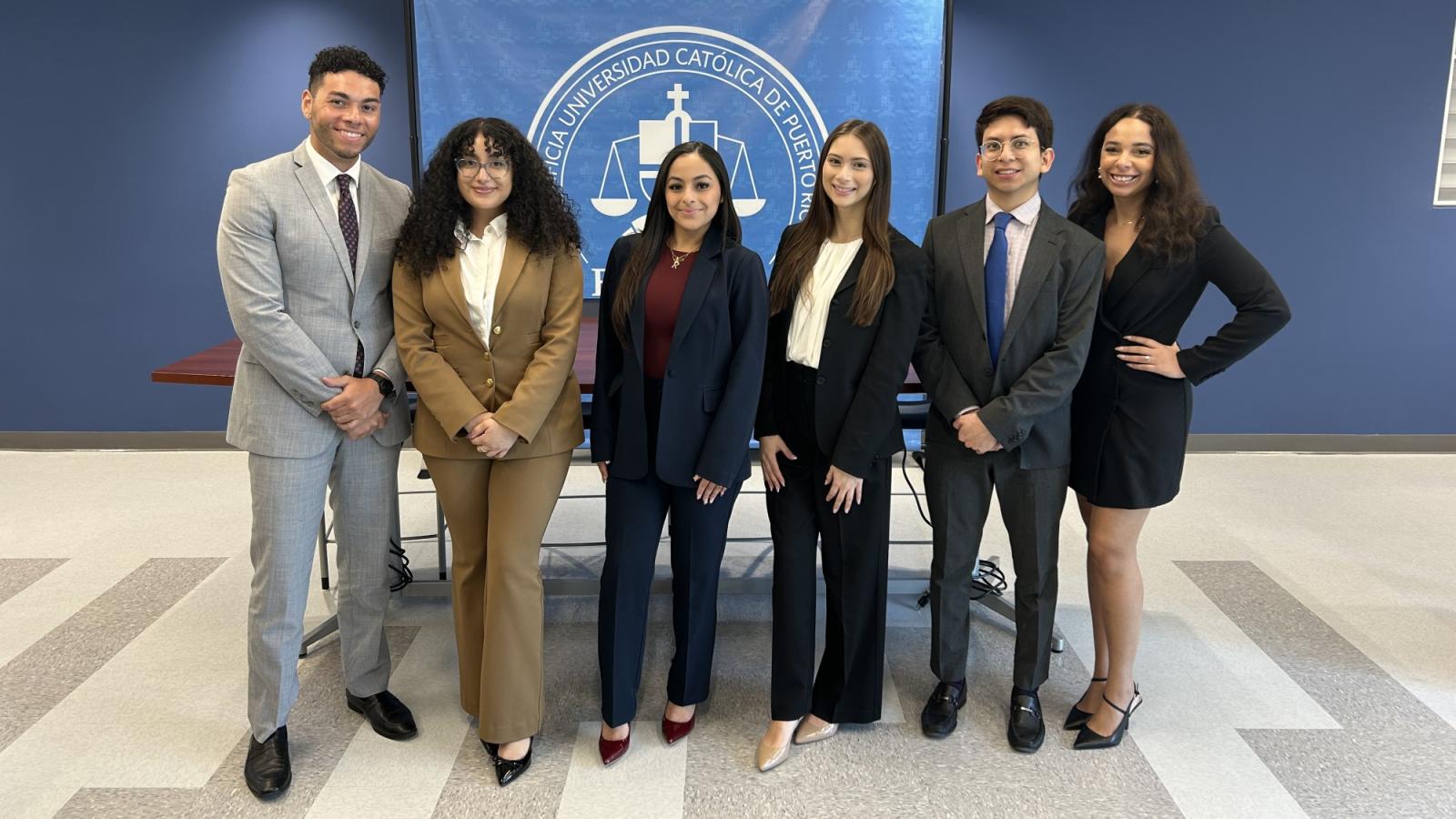
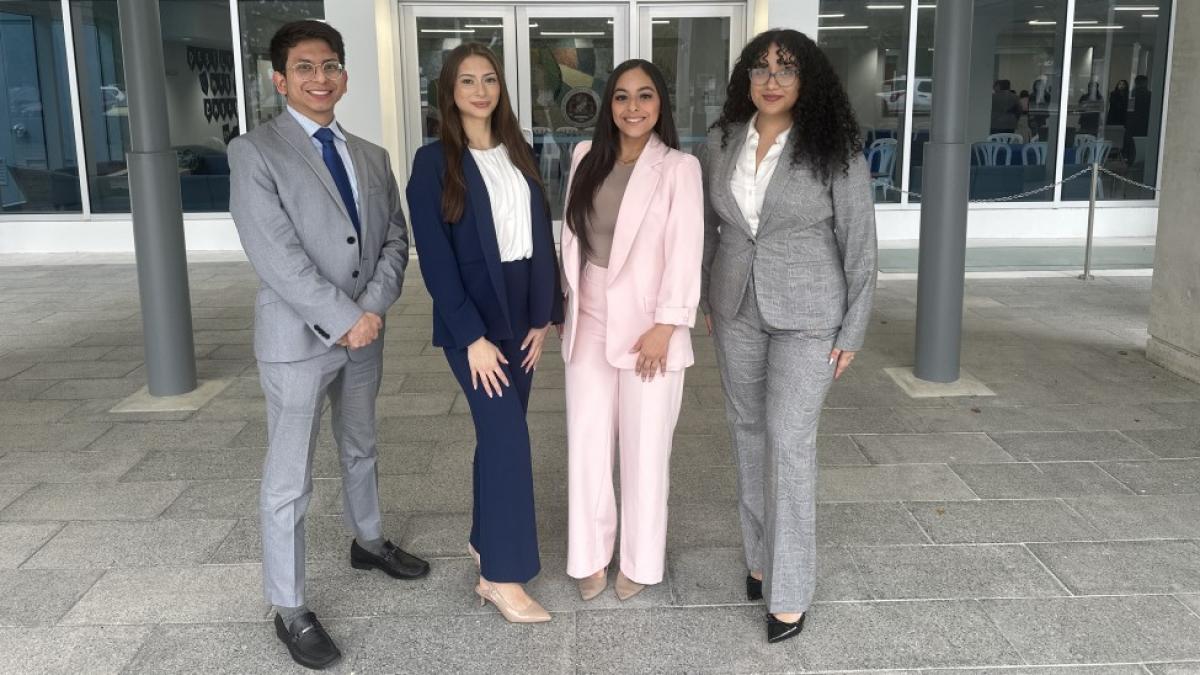
The Elisabeth Haub School of Law at Pace University’s LALSA Moot Court Teams took home first and second place in this year’s 17th Annual National Latina/Latino Law Student Association (NLLSA) Moot Court Competition. The Competition, held over the course of two days in Puerto Rico, is organized by NLLSA. Haub Law sent two teams to compete this year and in an exciting final round, the two Haub Law teams versed one another, ultimately finishing as the top two teams.
“This year’s Haub Law teams were well-prepared and excellent competitors,” said Angelica Cancel ’17, one of the team’s coaches. “To have our two teams take home first and second place is an honor and a testament to the dedication of the student advocates.” The Haub Law Teams consisted of Samantha Portillo (3L) and Kaitlyn Cepeda (2L) on one team and Francesca Rocha (2L) and Emanuel Yax (3L) on the other team. Samantha and Kaitlyn’s team, coached by Michael Pabon ’22, finished in first, with Francesca and Emanuel’s team, coached by Angelica Cancel ’17, in second. Additionally, Francesca Rocha (2L) won the Top Oralist Award – Appellant.
“I am so grateful to have had the experience of traveling to Puerto Rico for this competition with my Haub Law teammates,” LALSA Moot Court Team member Samantha Portillo (3L). “We prepared for months leading up to the competition and it is rewarding to see that hard work pay off with the results.” Haub Law has a strong history with NLLSA and the NLLSA Competition. Several Haub Law students have served on the executive board of NLLSA in the past. Currently, there are four Haub Law students on NLLSA’s executive board for the 2024–2025 academic year. Haub Law student Samara Pizarro ‘25 is the NLLSA Attorney General and assisted in writing this year’s competition fact pattern. Additionally, Haub Law students Henry Rodriguez (2L), Joesph Martinez (3L), Jalice Zea-Roman (3L) are members of the NLLSA executive board.
“This was a tremendous accomplishment for our teams and coaches,” said Professor Louis Fasulo, Director of Advocacy Programs and Professor of Trial Practice. “The work and strategy along with the excellent argument made by the competitors led to both of our teams being recognized. Our victory here reflects the first time our teams received both champion and finalist recognition. The results speak volumes on the quality of our program and the dedication of all. I am very Pace Proud!”


